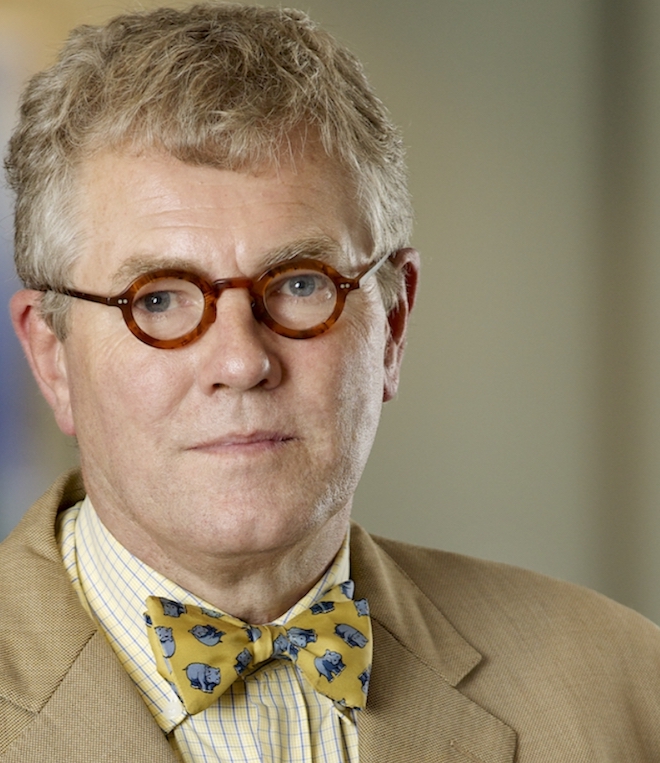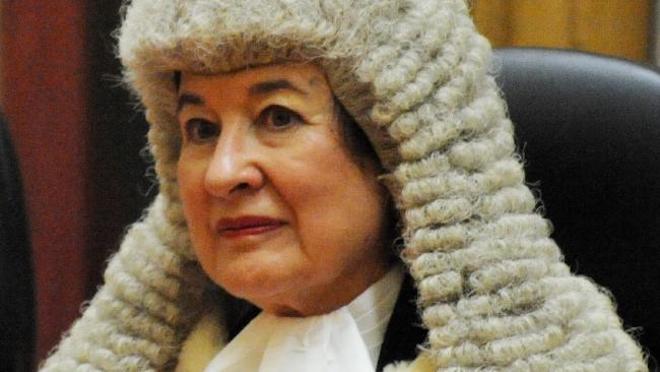Was he a client or wasn’t he? ... Court of Appeal breathed life into a Brisbane solicitor's action against Lord Eldon over barristerial advice about failed NCA proceedings ... Sir Terence O'Rort reports ... From Justinian's archive, February 2004
 Lord Eldon
Lord Eldon
THE Queensland Court of Appeal has given solicitor Stephen Gray an encouraging leg-up in the fight against barrister-about-town, Lord Eldon (aka Anthony John Hunter Morris QC).
McPherson JA, Chesterman and McMurdo JJ overturned a summary judgment in the District Court in favour of Morris. P.D. McMurdo in writing the leading reasons observed:
”... a court must keep in mind why the interests of justice usually require the issues to be investigated at a trial.”
The nub of the Gray-Eldon fall-out goes back to 1995 when Gray was practising under the name of Gray & Maloney. Two clients, Allan Barrow and Wei Yan Yu, were of interest to the National Crime Authority which raided the offices of the law firm to seize files and other documents. Barrow and Yu and some of their companies had been sued under the Crimes (Confiscation of Profits) Act.
Through solicitor Terry O’Gorman, Barrow, Yu, other clients and Gray launched a Supreme Court action against the NCA claiming the documents were seized unlawfully.
Morris, who was engaged by Robertson O’Gorman, settled this statement of claim on behalf of all the plaintiffs, shortly after proceedings were commenced.
However, Gray asserts Lord Eldon told him that it was necessary for Gray & Maloney to be a party to the action against the NCA because the duty of confidence owed by the firm to the clients meant there was a duty to assist them in protecting the confidentiality of the privileged documents seized.
Gray says he requested that his firm not be a party to a claim for damages and that its only involvement in the action should be nominal and only in connection to the recovery of the clients’ documents.
Gray also alleges he spoke to O’Gorman about an indemnity from his co-plaintiffs but didn’t pursue it because he believed his costs exposure as a “technical” plaintiff was small.
Big mistake.
By 1996, Gray was getting seriously chilly feet and looking to extricate himself from the proceedings which were going nowhere. O’Gorman’s firm had withdrawn as solicitors for the plaintiffs. No one else had stepped in and criminal proceedings against Barrow and Yu were looking grim.
 Justice White: ordered Gray to pay indemnity costs of $75,000
Justice White: ordered Gray to pay indemnity costs of $75,000
In May 2001 the case was dismissed in the Queensland Supreme Court by Justice Margaret White. Her Honour criticised Gray for being a party to allegations of impropriety and unlawful conduct which she said he could not have thought were true and which were unnecessary to further a claim of legal professional privilege. She ordered Gray to pay costs on an indemnity basis, some $75,000.
Hence Gray’s action, or rather than of his insurer, against Morris. As McMurdo put it:
“He [Gray] contends that the respondent, a practising barrister, advised him that he was duty bound to support the case of the other plaintiffs by becoming a plaintiff. He says that this advice was not only wrong, but also negligent, misleading or deceptive and involved a breach of fiduciary duty allegedly owed to him by the respondent.”
Gray issued proceedings against Eldon in the District Court in May 2003, claiming damages for negligence under the Trade Practices Act 1974 and the Fair Trading Act 1989 (Qld). He applied to amend to add a claim for equitable compensation for breach of fiduciary duty.
Lord Eldon’s defence was simple. Gray’s loss wasn’t caused by advice from him but from his [Gray’s] own misconduct of the case and anyway he wasn’t Grey’s barrister, having being retained by Robertson O’Gorman to act on behalf of Barrow.
The District Court agreed, finding that Morris was never in the position of legal adviser to Gray and so could not be liable for his loss. Gray was refused leave to amend and Lord Eldon was given judgment.
The Court of Appeal wasn’t so sure about all of that, finding:
”... it is a least arguable that the relationship was one of client and barrister at the time of the relevant conversation. But if it was not it had very arguably become so by the time the statement of claim was settled, at which point the respondent owed to the appellant the well defined duties of a barrister to a client.”
P.D. McMurdo further observed that Gray & Maloney “was not a necessary party to the NCA proceedings” and that there is “a negligence case which has a real prospect of success”.
The District Court dismissed the relevance of the advocate’s immunity from a claim in negligence because it concluded there was no advocate-client relationship. The operation of the immunity might have to be determined by the trial judge. McMurdo J said:
“In particular the trial judge might have to consider whether the advice was sufficiently connected with the preparation and conduct of proceedings as to be not actionable.”
The Court of Appeal thought it was unnecessary for Gray to show that his loss was solely caused by the Morris’ conduct. He need only establish that it was one effective cause. McMurdo went on:
“The question is whether it is so clear on what is presently known of the facts that the only cause of his loss was his own conduct from 1996 onwards, in not seeking to undo that which he had been advised to do or which had been done by [Morris] on his behalf. In my view, it is not, and his claims have real prospects of success despite this issue.”
Gray’s claim under the Fair Trading Act was dismissed as it had no prospect of success, but allowed under the Trade Practices Act. The application for leave to amend to add a claim for equitable compensation for breach of fiduciary duty was allowed.
Lord Eldon was ordered to pay the costs of the appeal, the application for leave to appeal as well as his own costs for the summary judgment.
Gray is now a partner of the Eagle Street law shop Nicholsons, a branch of the Hunt & Hunt empire.
Reporter: Sir Terence O’Rort QC
Ed's note: The matter was later settled.